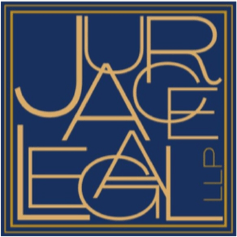Introduction:
In a recent decision, the Delhi High Court bench of Justice Jasmeet Singh clarified the enforceability of arbitration clauses in subsequent agreements. The case in question, Deepa Chawla Vs. Raheja Developers Ltd. centred on whether an arbitration clause from an initial agreement could be applied to a later agreement between the same parties.
Brief Facts:
Deepa Chawla (Petitioner) filed a suit seeking the recovery of ₹4,55,45,182/-. This amount arose from a series of agreements with Raheja Developers Ltd. (Defendant). Initially, the Petitioner agreed to purchase a flat in Gurgaon for ₹2,00,00,000/- under a Flat Buyer’s Agreement. This agreement was later supplemented by a Second Agreement, which committed the Defendant to refurbish the flat. Despite several extensions granted by the Petitioner, the Defendant failed to meet these obligations.
The Defendant sought to refer the dispute to arbitration under Section 8 of the Arbitration and Conciliation Act, 1996, relying on Clause 14.2 of the Flat Buyer’s Agreement. However, the Petitioner contended that the suit primarily concerned the Second Agreement, which did not include an arbitration clause, and sought to recover ₹4,55,45,182/- including principal, interest, and assured returns.
High Court’s Observations:
The High Court noted that the case involved two Distinct Agreements:
- Flat Buyer’s Agreement: This outlined the terms of sale but did not provide for refunds or specific possession deadlines.
- Second Agreement: This included specific terms for possession by 02.12.2016 or a refund of ₹2 crores.
The Delhi High Court observed that the Second Agreement explicitly excluded arbitration for disputes arising under its terms. Clause 9 of the Second Agreement stated that it would override the Flat Buyer’s Agreement, including dispute settlement mechanisms.
The High Court further referred to the Supreme Court’s decision in NBCC (India) Limited Vs. Zillion Infraprojects Pvt. Ltd, which emphasized that arbitration clauses must be specifically referenced to be enforceable in subsequent agreements.
The Court held that“…clause 9 of the Second Agreement categorically contains that this agreement shall have an overall overriding effect over the Flat Buyer’s Agreement, including the settlement of any dispute, meaning thereby that there is a specific exclusion of the arbitration clause for settlement of any dispute. Both the parties have agreed to the said clause and therefore cannot at this stage seek a remedy that they have waived by way of this express condition in the Second Agreement.”
Consequently, the High Court dismissed the Defendant’s application to refer the matter to arbitration, concluding that the application lacked merit.
Conclusion
Based on these observations, the High Court concluded that the Defendant’s application to refer the dispute to arbitration lacked merit and subsequently dismissed the application. This judgment underscores the necessity for explicit reference to arbitration clauses in subsequent agreements to ensure their enforceability.
Disclaimer: This article is for informational purposes only and does not constitute legal advice. The content may not reflect the most current legal developments and is not guaranteed to be accurate, complete, or up-to-date. Readers should consult a qualified legal professional before taking any action based on the information provided. The authors and publishers disclaim any liability for any loss or damage incurred as a result of reliance on this article. This article does not create an attorney-client relationship.

